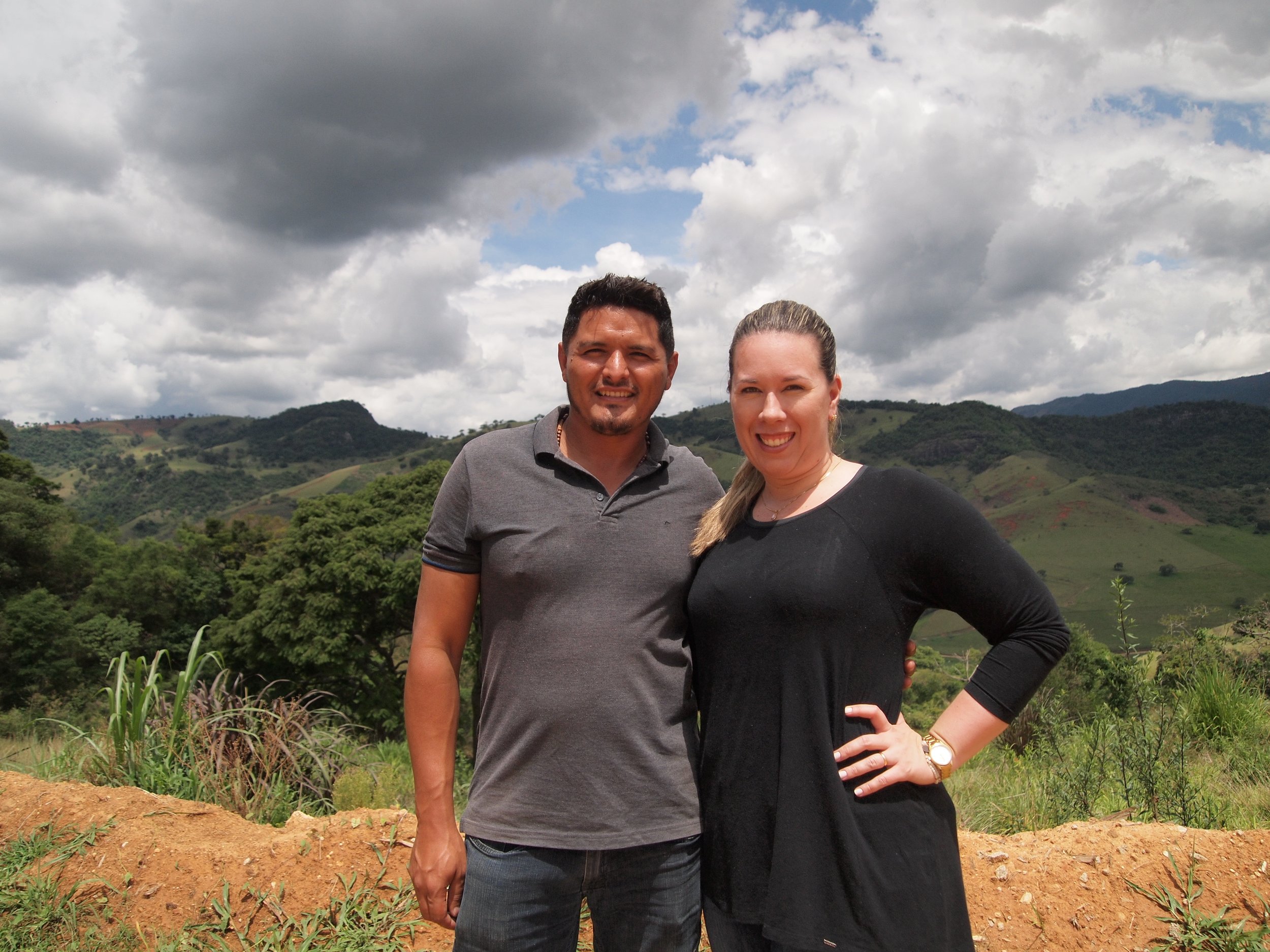Juquinha, Brasil ESPRESSO
Juquinha, Brasil ESPRESSO
Fyldig, søt, balansert.
Kakao, gul plomme, nøtter.
-
Prosess: Bærtørket
Region: Sul de Minas
250 g: 169,- / 1 kg.: 609,- (10% rabatt)
Ivan Prado de Melo, Roseane Batista, & Weder Batista
Juquinha
Info text from the coffee buyer Nordic Approach:
This coffee has been produced by Ivan Prado on his family’s farm, Juquinha, in the region of Minas Gerais.
We started buying coffee from Ivan and his wife Rosane in 2019, who at the time were just stepping into their second harvest. Their coffees however stood out with a distinct character, breaking away from typical Brazilian flavours. Juquinha is co-owned by Ivan, Rosane, and Rosane’s brother, Weder Batista. Initially dedicated to soy and corn cultivation, the farm is named after the siblings’ father. Rosane and Weder decided to transform the land into a coffee farm. Ivan, who has a background in quality assurance management for a German car parts company, brought an engineer's precision to coffee farming. Formerly a mechanic-minded individual, he now navigates the intricate balance between nature and coffee. The family delved into coffee research and set their sights on specialty coffee. This involved investing in African beds, conducting soil analyses and maintenance, lot separation, and meticulous processing. Their approach to fertilisers is equally meticulous, prioritising natural and organic methods. The farm is a thriving testament to their commitment, with rich, well-tended soil. With 5 permanent employees (as of 2019) and around 30 seasonal workers, the farm is home to 40,000 Yellow Catuai and yellow Catucai trees. Their harvest season typically spans from September to October, a bit later than neighbouring farms, allowing the cherries more time to mature. Across the 10 hectares divided into 11 plots, they strive to maintain lot separation, although the machinery's volume sometimes poses challenges. The dryer's size often dictates the lots, but meticulous care ensures the separation of coffee dried on the patio from that on the African beds, both contributing to exceptional flavours.
Picking
The cherries on Juquinha are generally picked manually, especially when it rains sporadically during the harvest, resulting in the trees flowering at different times. When this happens, the cherries ripen very unevenly, and a machine won't be able to take this into account when picking.
Processing
In 2019 they installed their own milling machines and the mechanical dryer. Even though they implement various processing methods, we only purchase their naturals.
Drying
These coffees are dried as whole cherries. They have the facilities to dry cherries in a mechanical dryer, on patios, and on open, raised, African beds. Out of the whole production of the farm, approximately 30% of the cherries are dried solely on raised beds. 70% start the drying process on the raised beds or patio, and are finished on the mechanical dryer. The cherries are only moved to the mechanical dryer once they reach a moisture content of 15%, or below. The cherries spend a maximum of 2 hours a day in the mechanical dryer.
..








